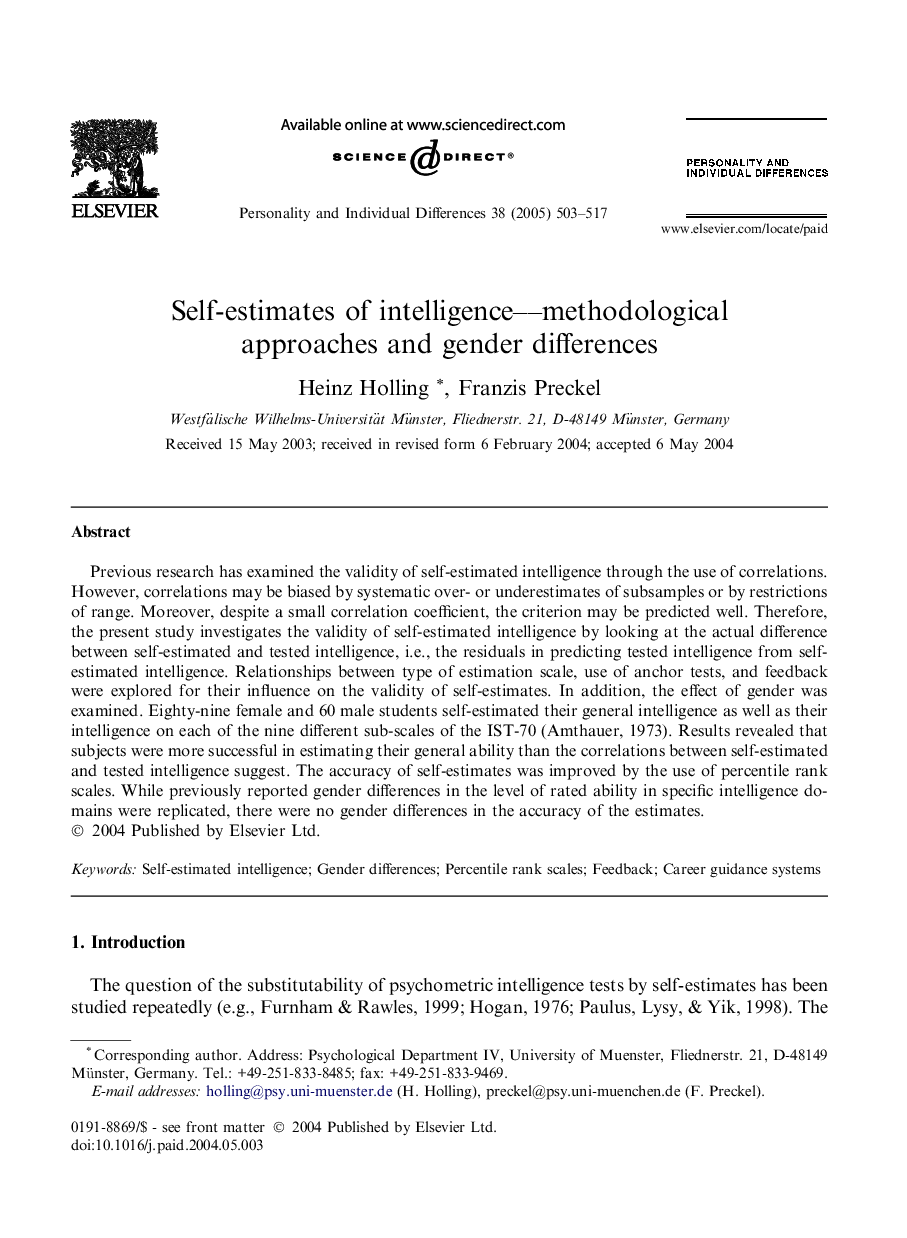| Article ID | Journal | Published Year | Pages | File Type |
|---|---|---|---|---|
| 10441453 | Personality and Individual Differences | 2005 | 15 Pages |
Abstract
Previous research has examined the validity of self-estimated intelligence through the use of correlations. However, correlations may be biased by systematic over- or underestimates of subsamples or by restrictions of range. Moreover, despite a small correlation coefficient, the criterion may be predicted well. Therefore, the present study investigates the validity of self-estimated intelligence by looking at the actual difference between self-estimated and tested intelligence, i.e., the residuals in predicting tested intelligence from self-estimated intelligence. Relationships between type of estimation scale, use of anchor tests, and feedback were explored for their influence on the validity of self-estimates. In addition, the effect of gender was examined. Eighty-nine female and 60 male students self-estimated their general intelligence as well as their intelligence on each of the nine different sub-scales of the IST-70 (Amthauer, 1973). Results revealed that subjects were more successful in estimating their general ability than the correlations between self-estimated and tested intelligence suggest. The accuracy of self-estimates was improved by the use of percentile rank scales. While previously reported gender differences in the level of rated ability in specific intelligence domains were replicated, there were no gender differences in the accuracy of the estimates.
Related Topics
Life Sciences
Neuroscience
Behavioral Neuroscience
Authors
Heinz Holling, Franzis Preckel,
